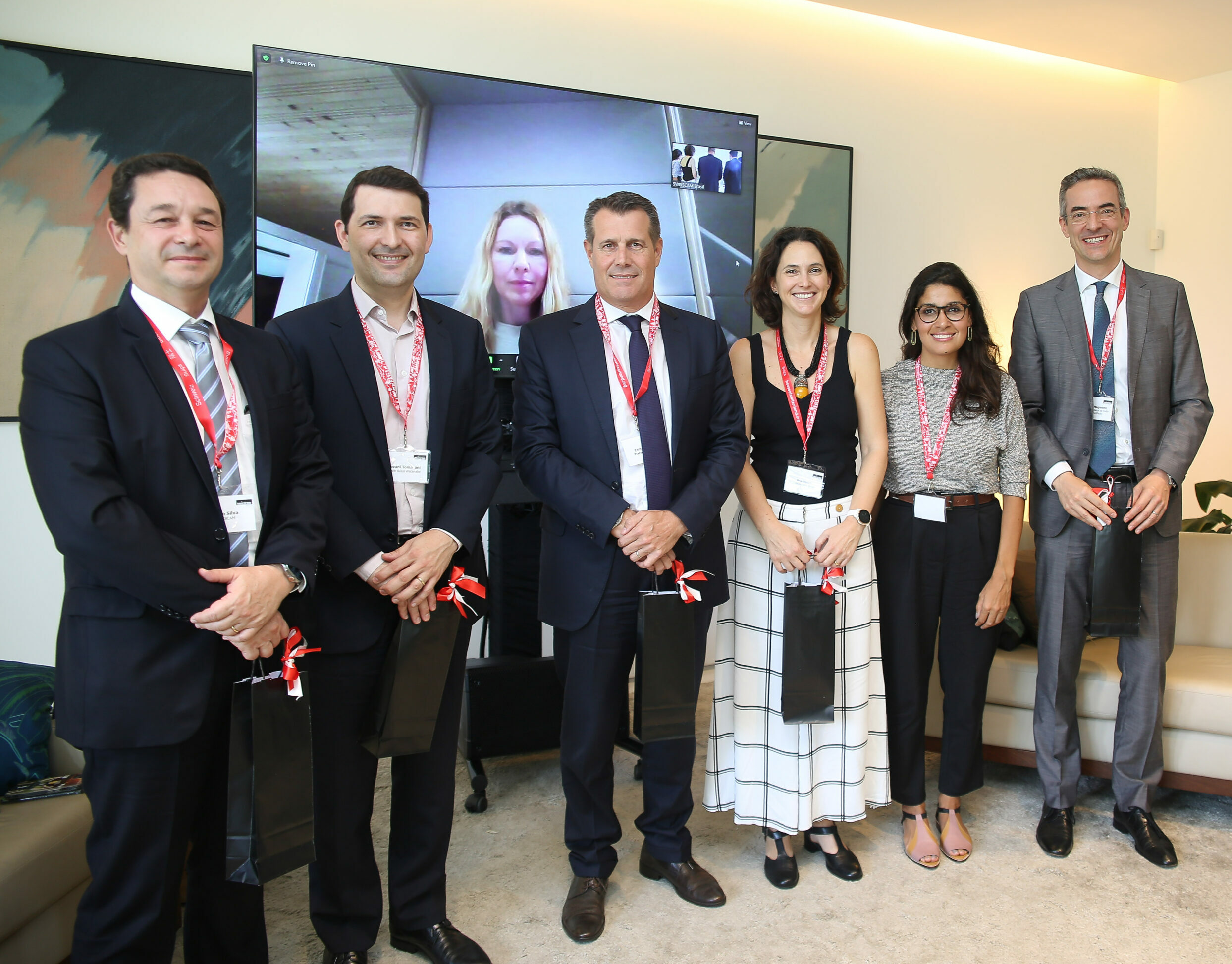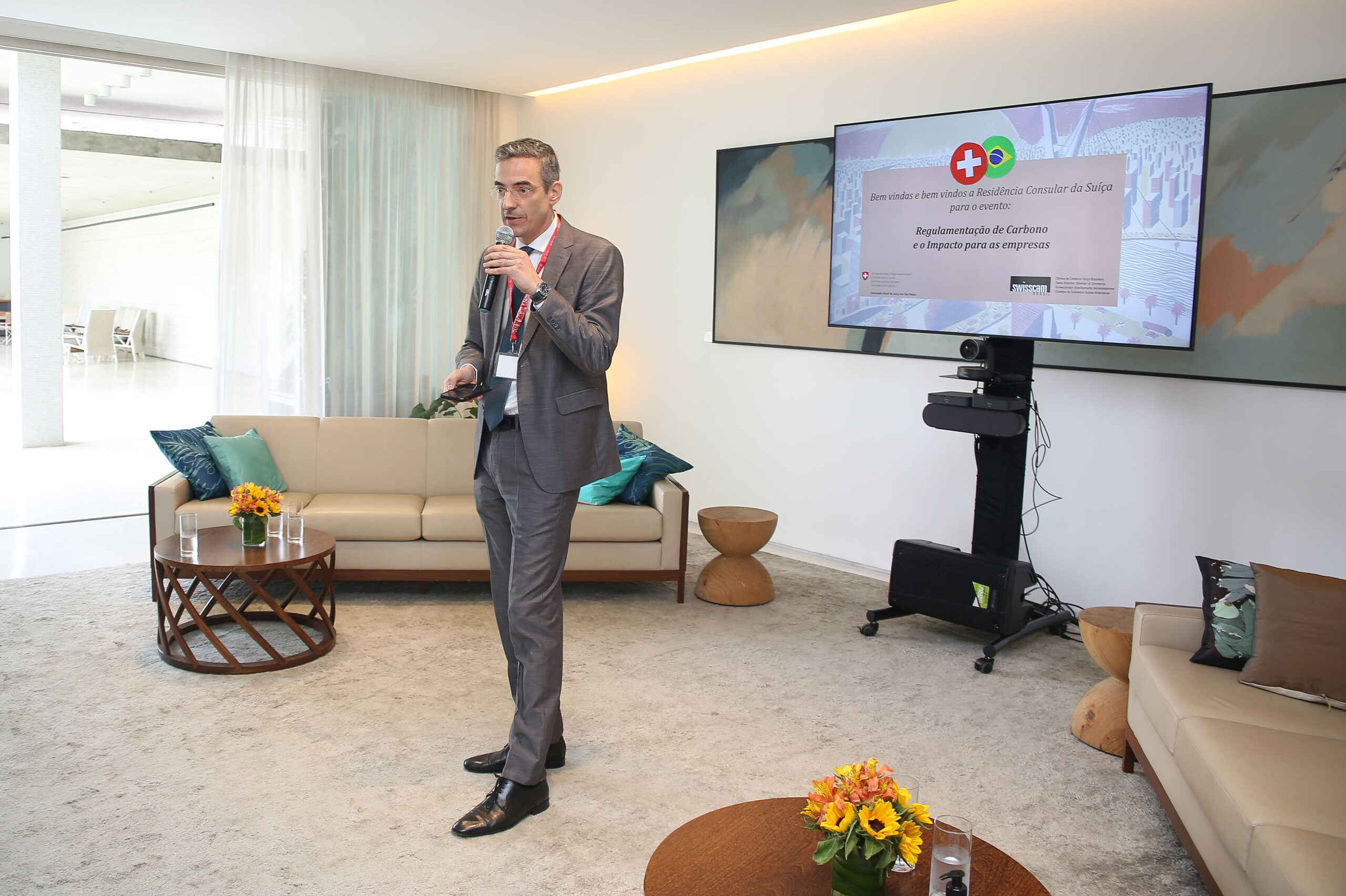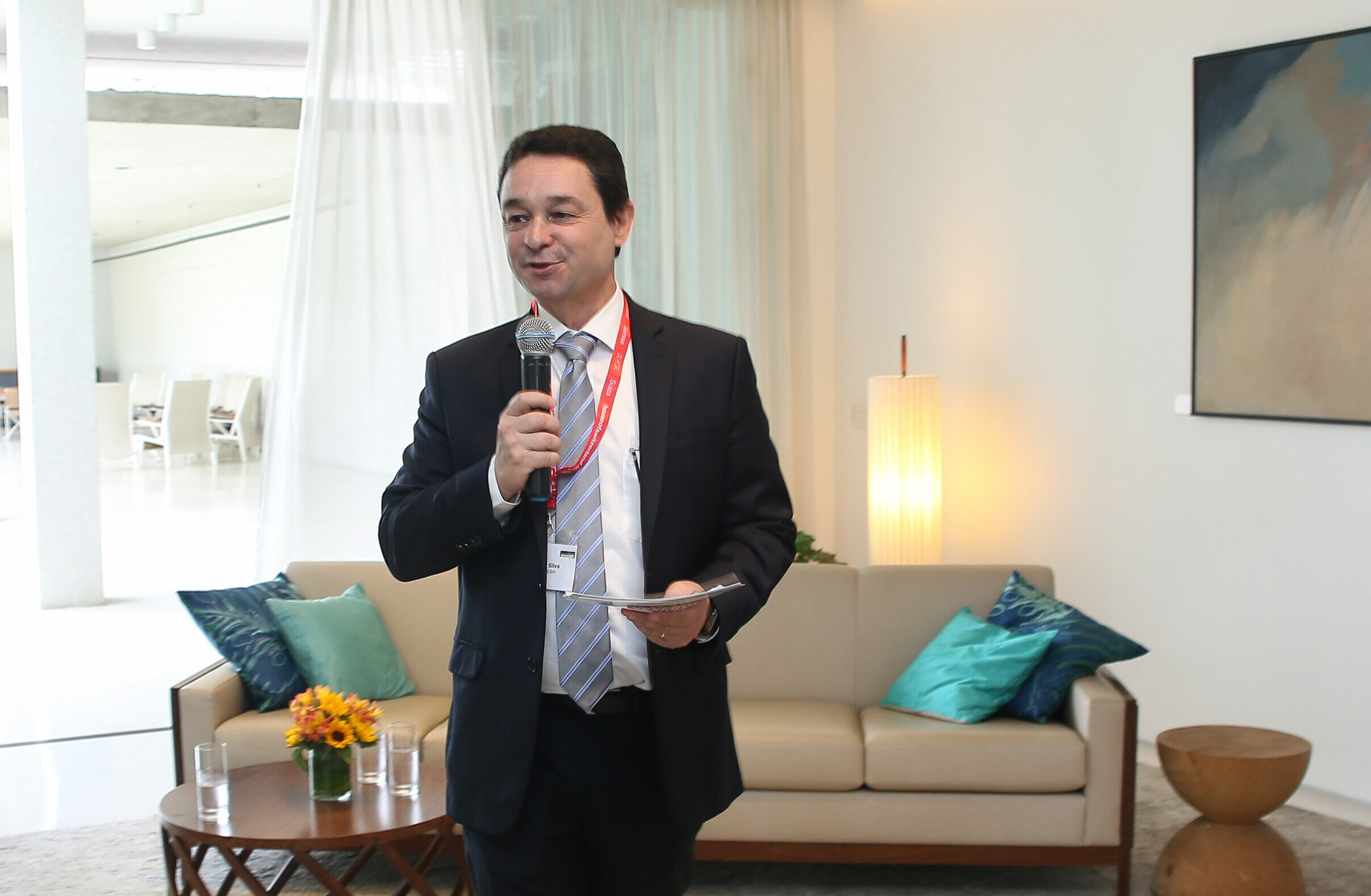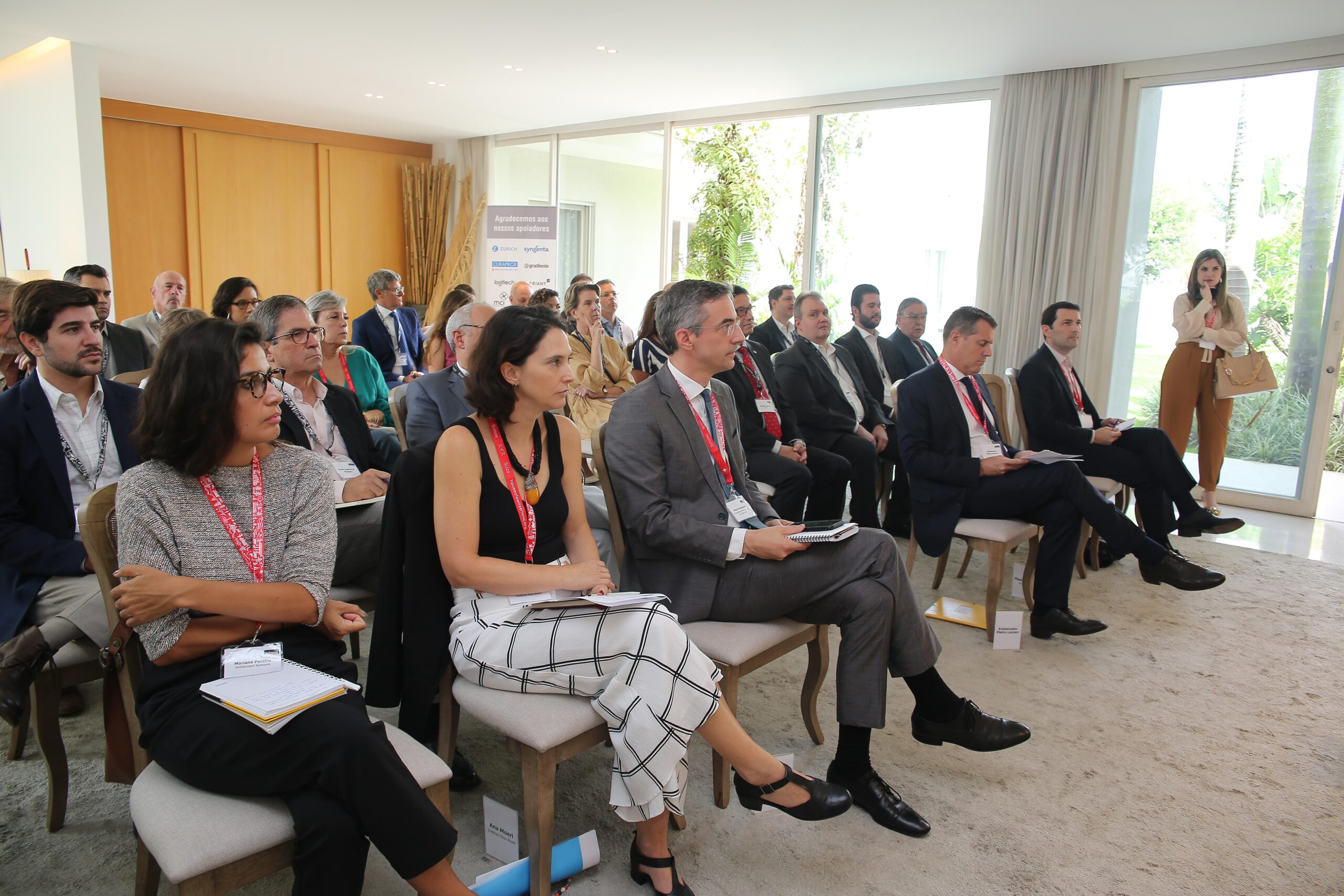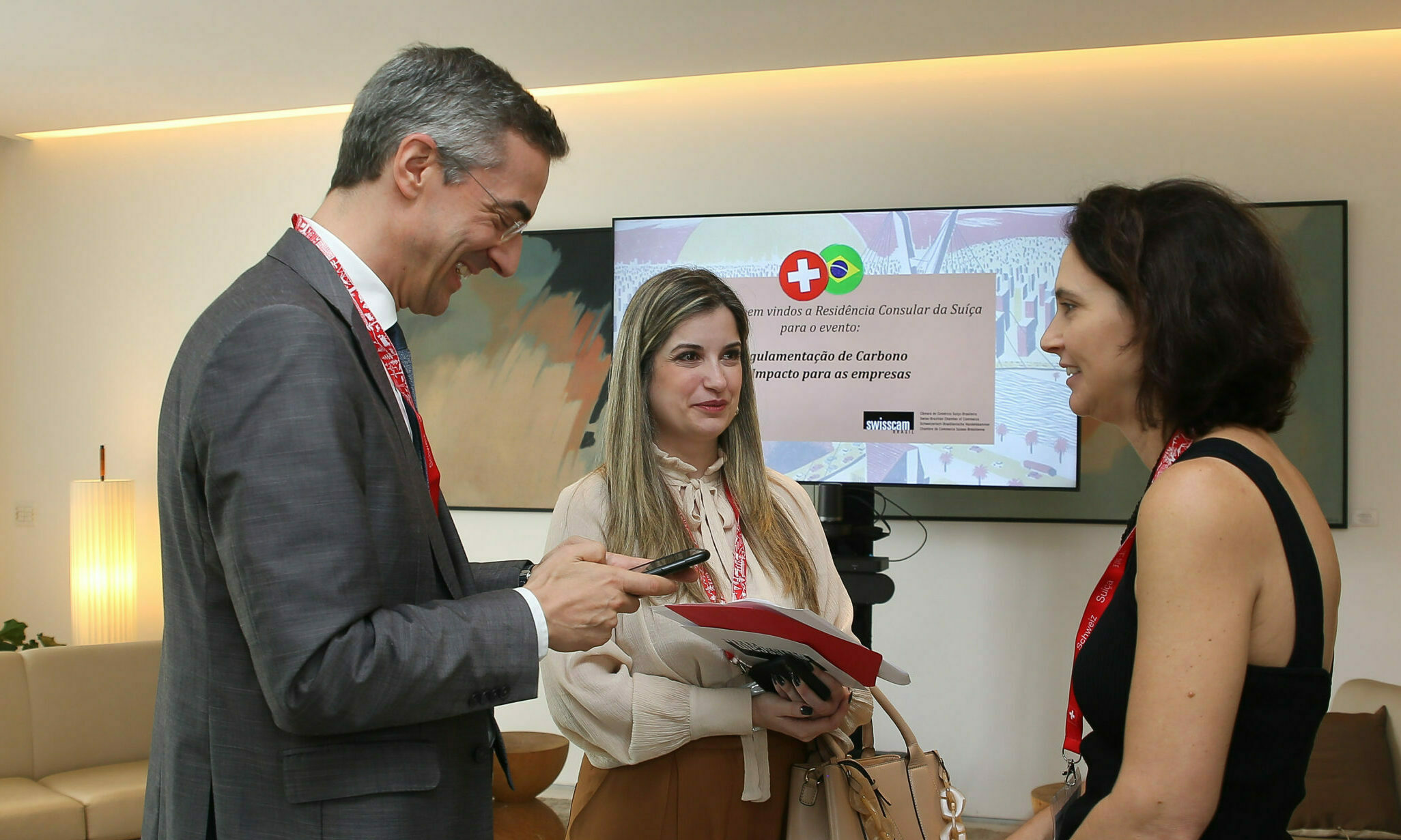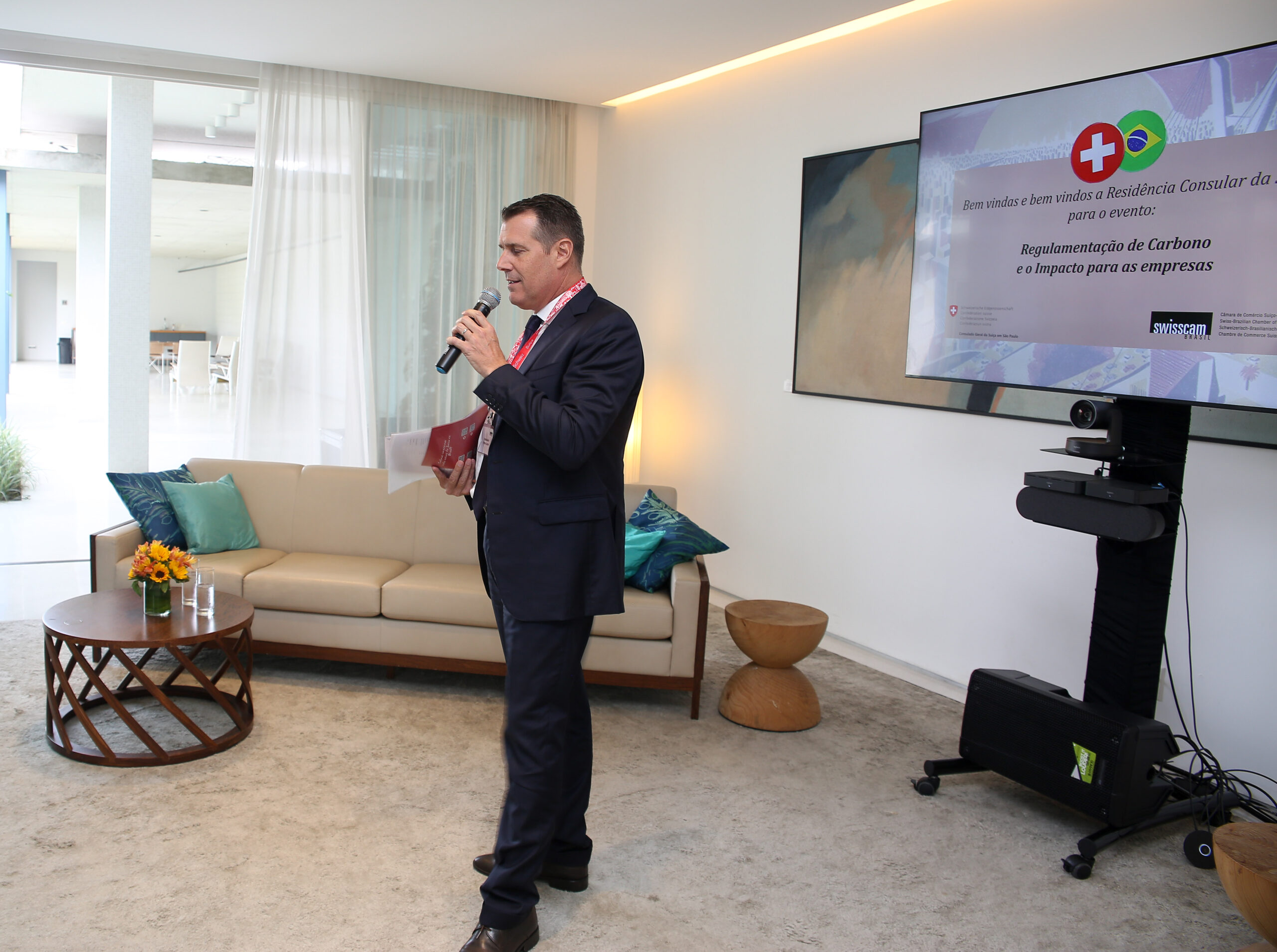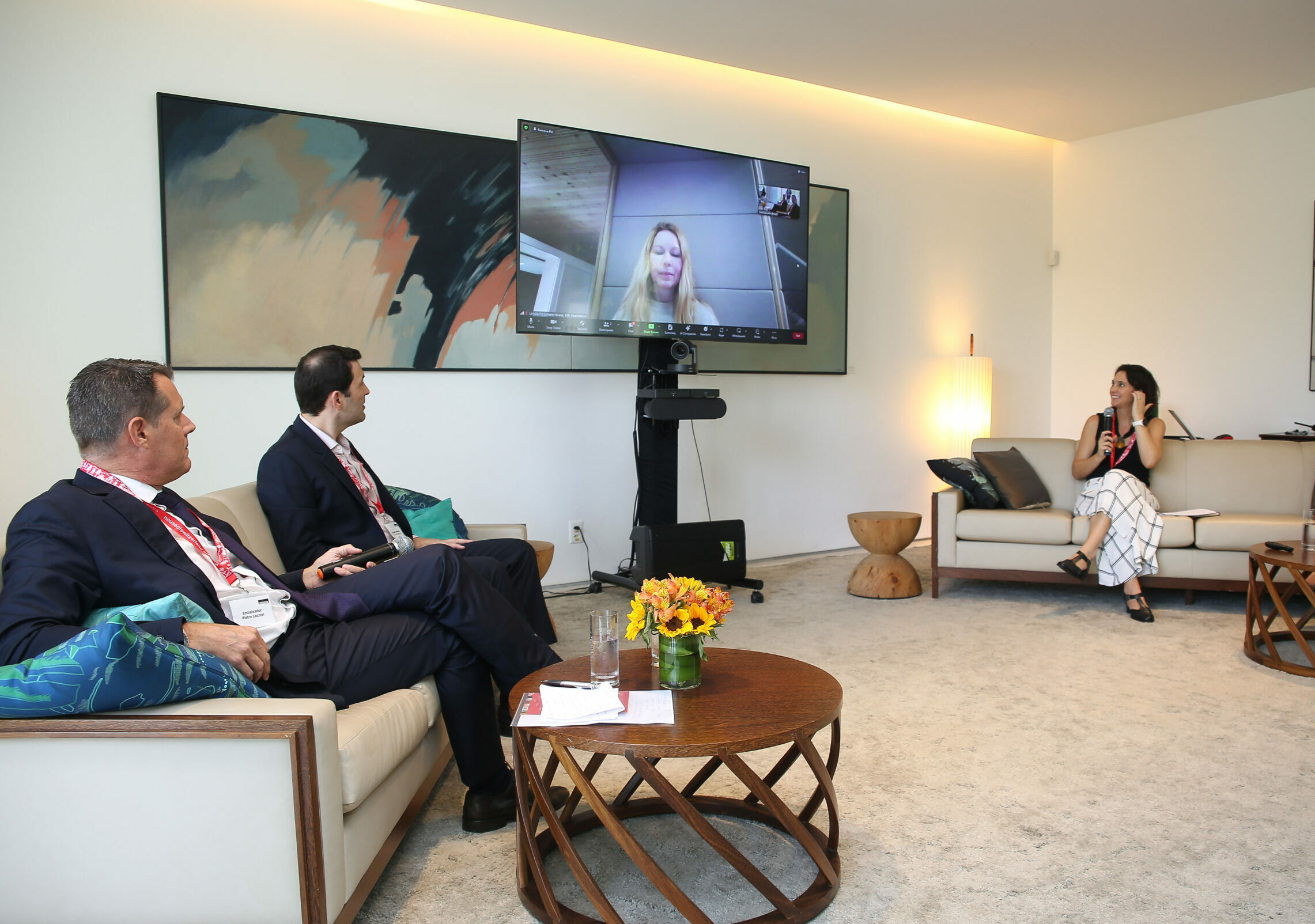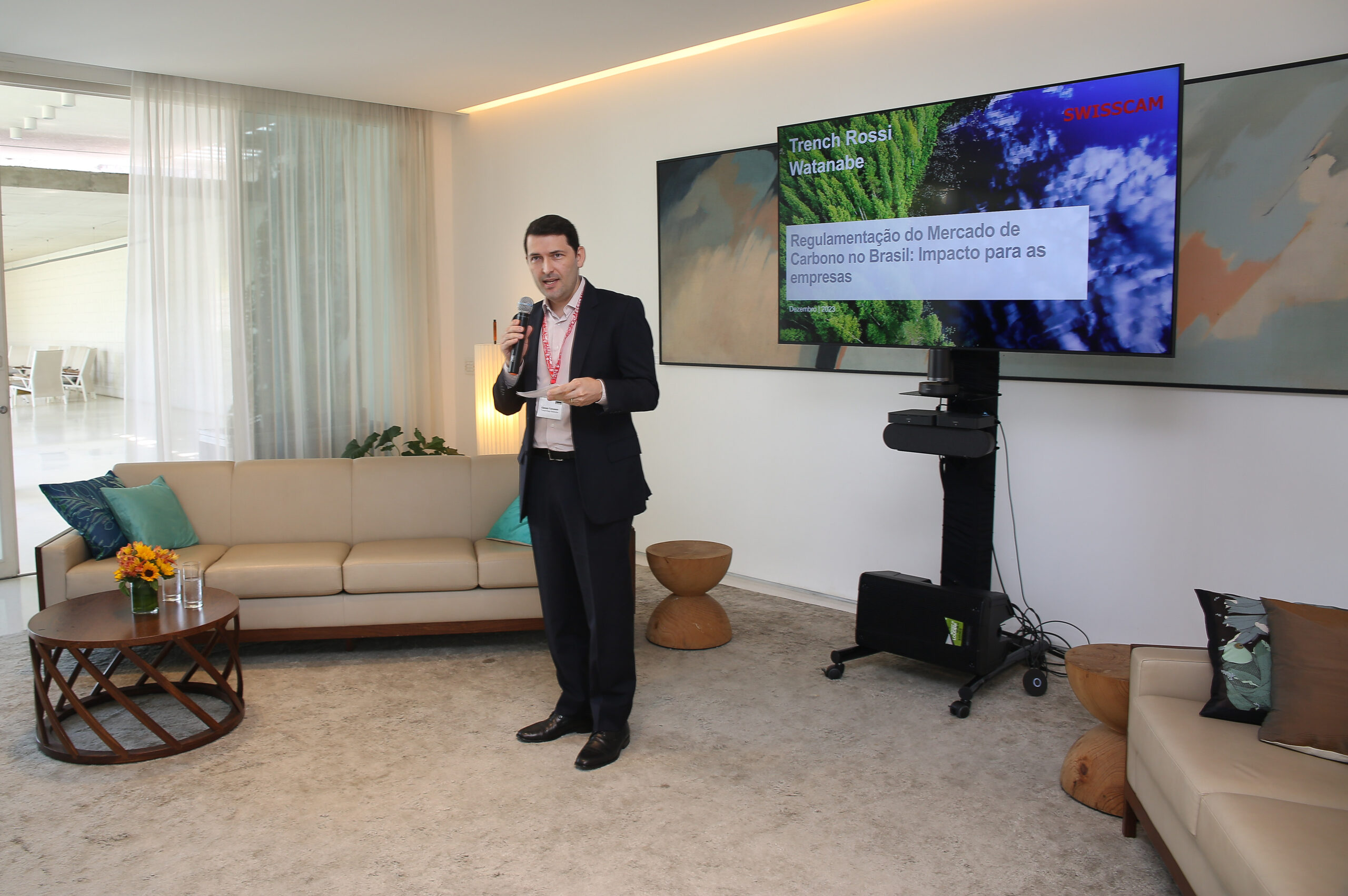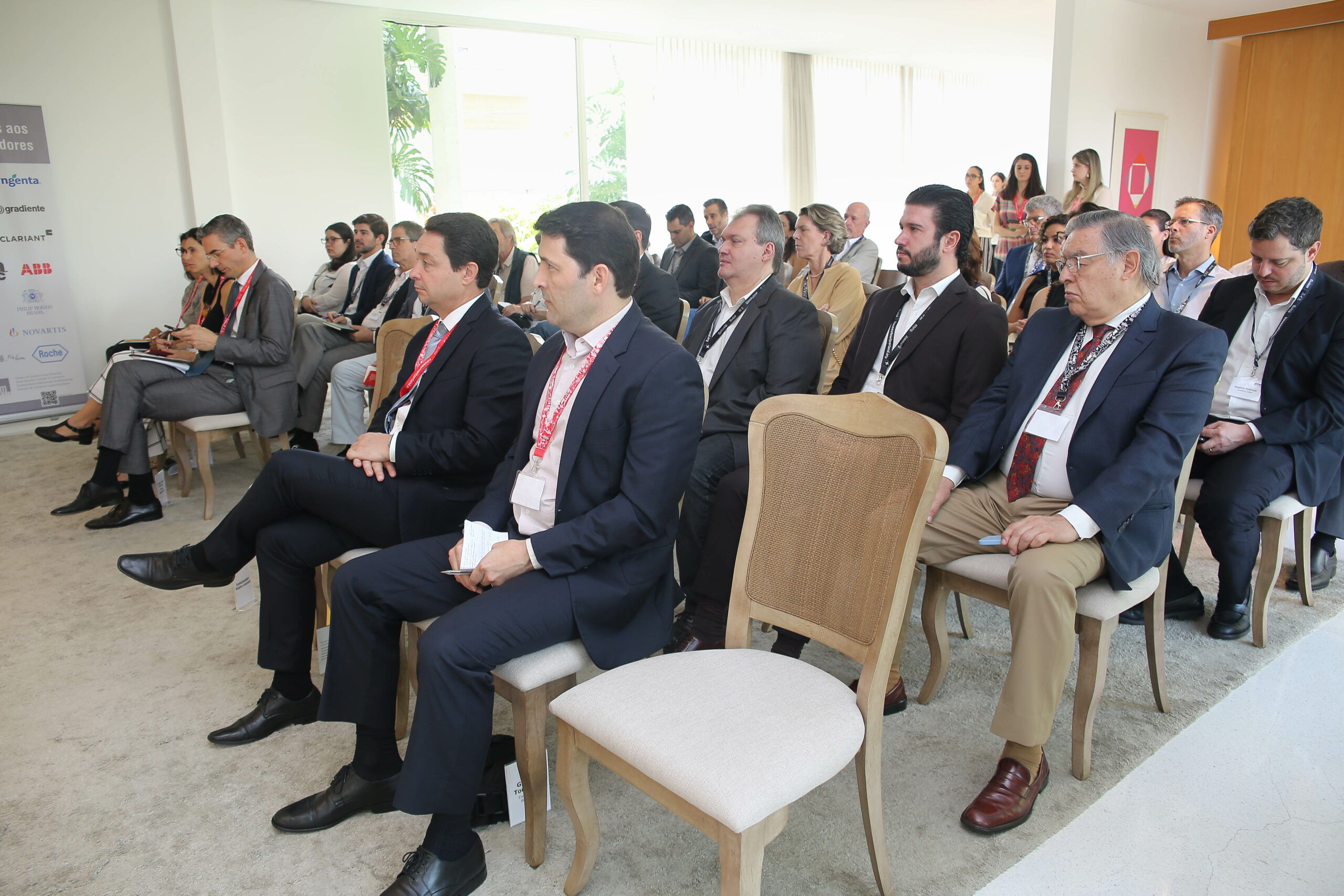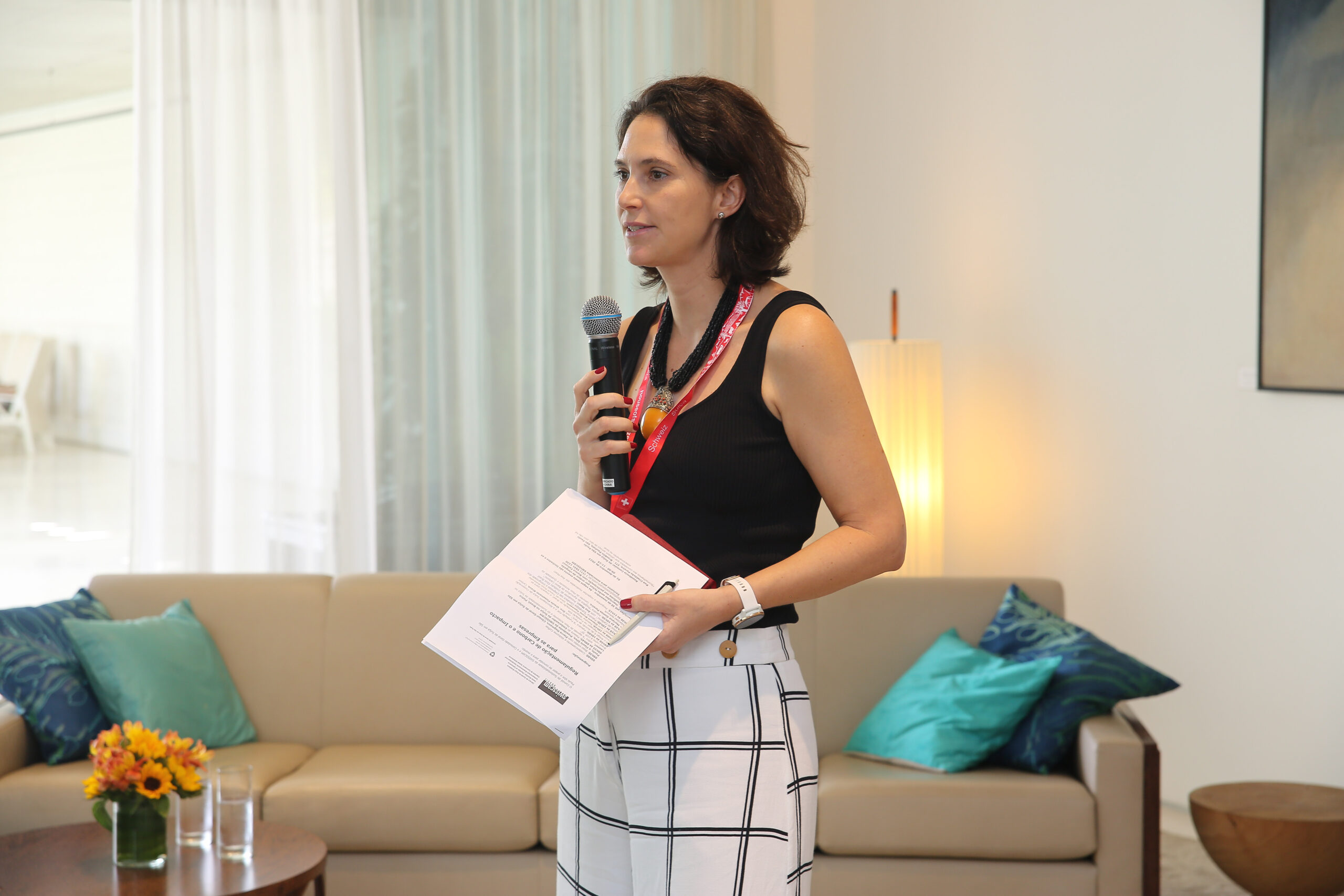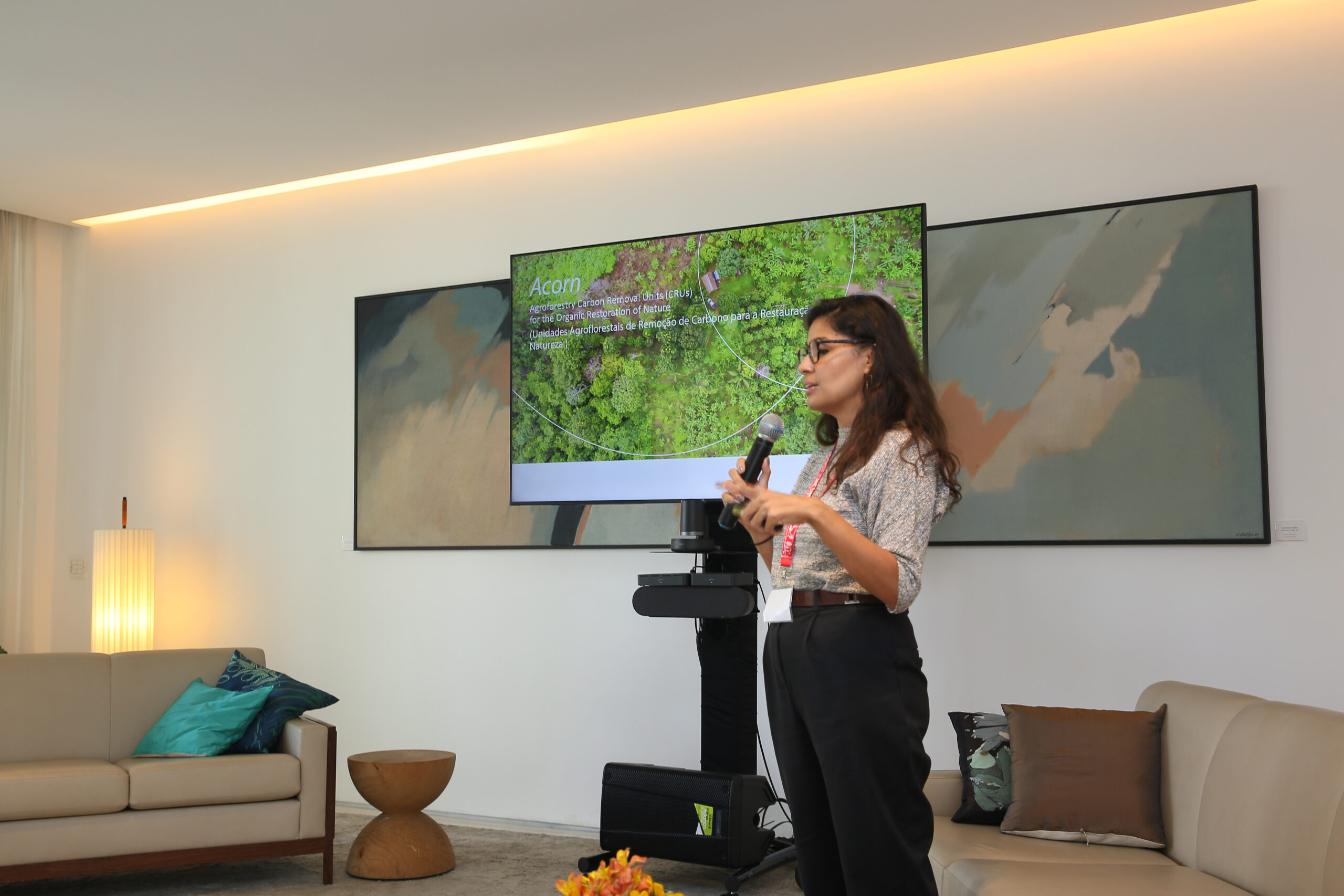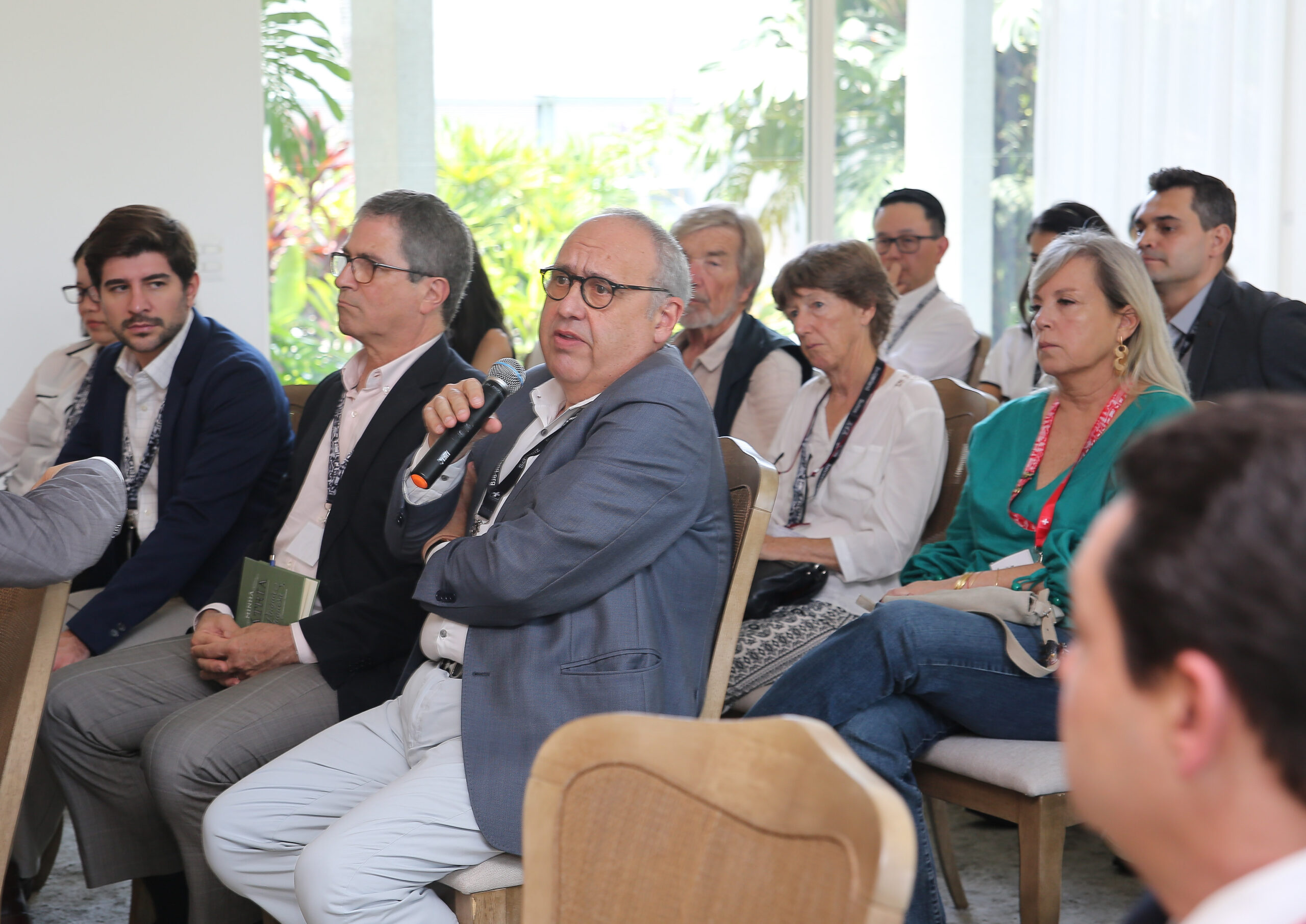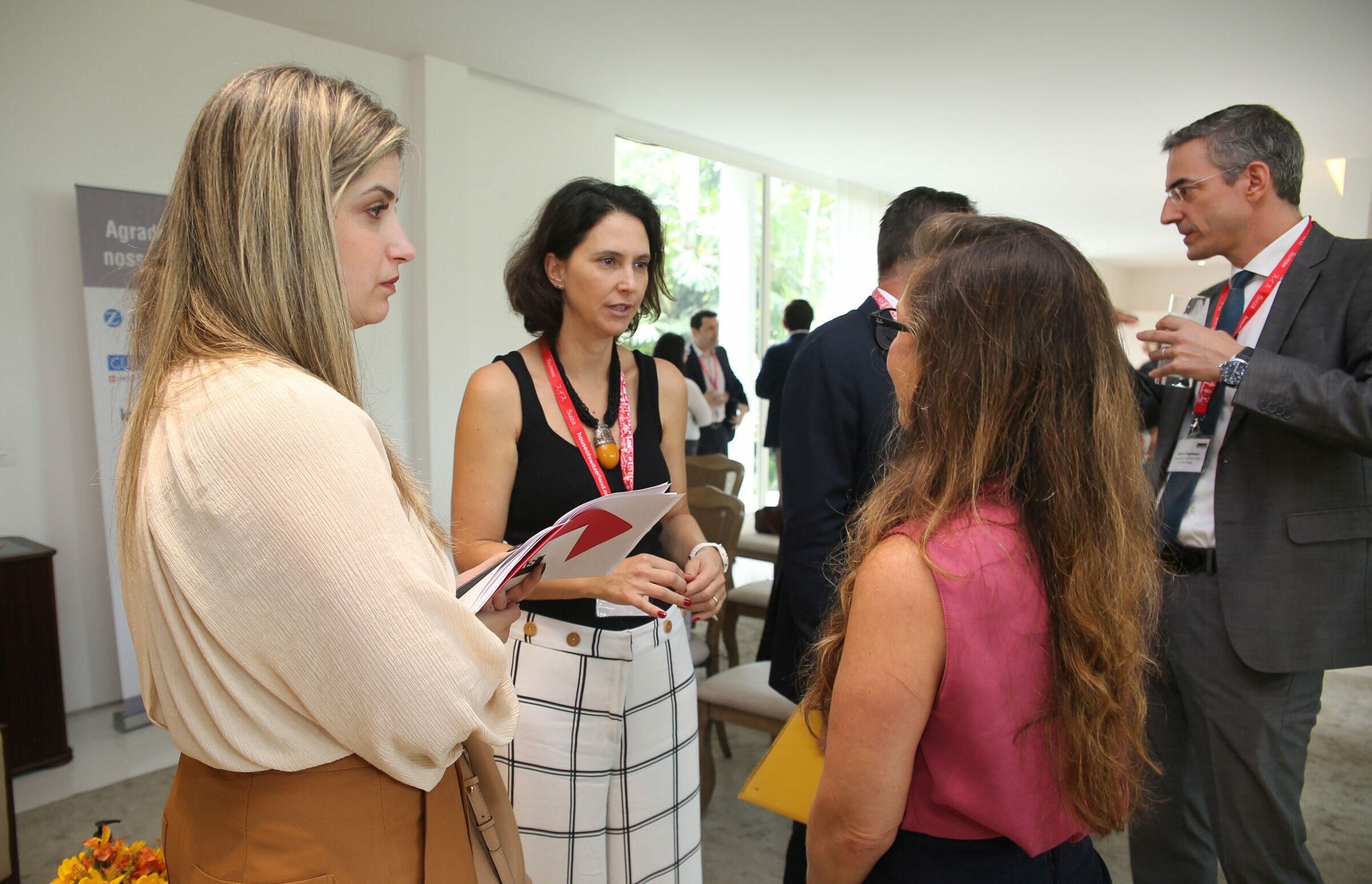On December 1, 2023, the SWISSCAM Sustainability Committee organized the second edition of the Sustainability Panel on the Carbon Market in partnership with the Swiss Consulate General in São Paulo.
We had welcoming words from the Consul General of Switzerland, Pierre Hagmann, and the President of SWISSCAM, Flavio Silva, and the event was moderated by the Coordinator of the SWISSCAM Sustainability Committee and President of the Ekos Institute, Ana Moeri.
The first lecture was given by the Ambassador of Switzerland, Pietro Lazzeri, on “Switzerland’s Environment and Sustainability agenda in Brazil towards COP 30”. Swiss representations in Brazil were in the Amazon in November 2023 on an itinerary of almost 10 days in Belém, Santarém, Alter do Chão, Floresta do Tapajós, Manaus, discussing the carbon market with various groups from indigenous communities to the Consortium of Governors of the Legal Amazon.
This shows that the environment and sustainability are one of the fundamental components of bilateral relations with Brazil. The other two priorities are economic and commercial relations, and innovation, research and science.
On this path to the 30th UN Conference on Climate Change (COP-30), to be held in 2025 in Belém, Pará, the Ambassador points out bilateral cooperation among the fundamental components of the agenda. Switzerland has just joined the Amazon Fund, but the idea is to contribute not only with resources, but also with the expertise of the Swiss government, companies, NGOs and the academic sector. He cited as an example the bioeconomy program launched by Swissnex in Pará.
Switzerland is the largest buyer of Brazilian gold. Using traceability technology to identify the origin is also of great importance. The Embassy supports several initiatives in this area.
Cooperation also includes Switzerland’s participation in several programs in Latin America in funds such as the IDB (Inter-American Development Bank) on bioeconomy, and in the global Climate Investment Funds (CIF) and Global Environment Facility (GEF).
Public-private partnerships and the engagement of Swiss companies are another important line of action. More than 100 projects implemented by Swiss companies in Brazil were mapped.
The last component is visibility, or so-called public diplomacy. The Swiss Sustainability and Innovation Award was the best example of how to value the projects that startups and companies implement in Brazil. The Ambassador informed that a new edition of the award will be organized in 2025, before COP 30.
The second talk was given by Dr. Ursula Flossmann-Kraus, Carbon Procurement Manager at the KliK Foundation, who participated in the event remotely directly from Zurich. Following Switzerland’s targets to reduce its emissions by at least 50% by 2030 in accordance with the Paris Agreement, the Foundation is tasked by the Swiss government with implementing a series of actions to offset emissions from the Swiss transport sector nationally and globally.
Article 6 of the Paris Agreement provides for bilateral or plurilateral cooperation in order to make it possible to reduce emissions through programs carried out abroad. To achieve its goal, Switzerland has already signed an agreement with 11 countries (Brazil is not yet on this list).
Specifically in its area of activity, the KliK Foundation has the goal of purchasing approximately 20 million ITMOs (Internationally Transferred Mitigation Outcomes) by 2030. To find out more about actions abroad to mitigate climate change, visit www.klik.ch/en/international.
Giovani Bruno Tomasoni, Partner at Trench Rossi Watanabe, gave a lecture on regulation in Brazil as well as the impact on companies. Brazil updated its target for reducing greenhouse gas emissions in a very bold way. On the occasion of COP 28, the intention was announced to reduce emissions by 48% by 2025 compared to the 2005 level. For 2030, the target is 53%. Previously, this target was 37% and 43% respectively.
Another novelty is the return of the Interministerial Committee on Climate Change, which issued a series of resolutions also on the occasion of COP 28, with emphasis on the Climate Plan, which will define national strategies, sectoral carbon mitigation plans, which sectors have to reduce and how much, among others.
The bill that will regulate the new carbon market, approved in the Senate and awaiting a vote in the Chamber of Deputies, will create the Brazilian Emissions Trading System (SBCE). Giovani raised important points of discussion about which companies will be obliged to report or reduce their emissions. A big question is whether carbon credits sold on the voluntary market, whose investments are already heavy, can be used on the regulated market.
The legal nature is another point that has a lot of impact. The bill defines that the credits will be securities, which is positive for those who buy. For those who develop a project, the regulatory cost will be higher. There are tax issues involved. As in the waste market, if there are no incentives/reliefs, perhaps the carbon market will not be boosted as it should.
In general, Giovani has a positive view of the impacts on companies. Although some of them have to adapt and invest to reduce their emissions, this is an opportunity, as this transformation makes them more sustainable, brings more legal security and adds value.
Ana Moeri, President of the Ekos Brasil Institute, brought the interesting topic “Climate Strategy in Companies and Integrity of Carbon Credits”. As a way of supporting the integrity of the credits, Ana cited the Commitment to Climate program, which allows access to a platform that connects investors with developers of credible socio-environmental projects to purchase carbon credits.
For corporate climate management, companies first need to look at their activities, their energy matrix, and measure and understand their emissions. The next step is to assess where it is possible to reduce. Where this is not possible, compensation is made.
Ana informed that there are 170 types of carbon projects that can be used for compensation and how the voluntary market has increased in recent years, already reaching 2 billion dollars.
But she points out the challenges: the credibility of the projects, mainly in the Amazon and involving local communities. Buying companies must be careful to choose projects knowing the specificities of the region with the support of experts so as not to suffer reputational impact. A high-integrity project must have effective governance, tracking, transparency, permanence, among other elements to be considered as such.
Mariana Gomes Pereira, Environment and Quality Manager at Solidaridad Network, began her presentation on “Low Carbon Agriculture Projects” with impressive numbers. In 2021, deforestation represented 49% of Brazilian emissions. In Pará there are 13 million hectares of rural settlements, where part of this deforestation takes place.
To develop projects in this region and with small producers, Mariana warns of the various challenges. The difference in dealing with a property of 20 thousand hectares of forest or a thousand properties of 20 hectares is that, instead of 1 contract, a thousand contracts will be signed. Furthermore, it is essential to be known by the local community, to speak a language that the farmer understands, considering that sometimes they are semi-literate people, without the long-term vision to understand a 30-year contract.
Therefore, local partners need to have credibility and, after signing the contract, carry out technical monitoring, especially in the case of forest restoration credits. In this sense, resources such as the Amazon Fund would be useful to pay for technical assistance.
Mariana mentioned the example of the Rabobank initiative (Project Acorn) to include small farmers in the carbon market through agroforestry. Using a methodology that monitors carbon through satellite images, an estimate of the amount of biomass generated is made. Payments are made annually to the producer.
The proposal is to transition from the monoculture system to agroforestry. In this project, Solidaridad is the local partner for the engagement campaign, monitoring and organization of payments. The credit generated is sold on the voluntary market, with Microsoft being the largest buyer. The goal is to keep the price at least 28 euros per ton.
In this way, the income generated for these families is between one thousand and two thousand reais per hectare per year. Clearly no one is going to get rich with carbon, but it is an excellent option for income diversification. Furthermore, on the same property, it is possible to work with 3 types of carbon projects. Considering that there are more than 239 thousand family farming properties in Pará, the field is huge to be explored.
Mariana concluded by demonstrating that the carbon market can be seen as a socioeconomic development tool for these vulnerable regions.
The last block of the event was open to a panel of questions and answers to the speakers moderated by Ana Moeri, allowing rich interaction between the guests.
We would like to thank everyone who was present, the Consulate General of Switzerland in São Paulo for their partnership in holding this event and the Ouro associates who are our supporters.

